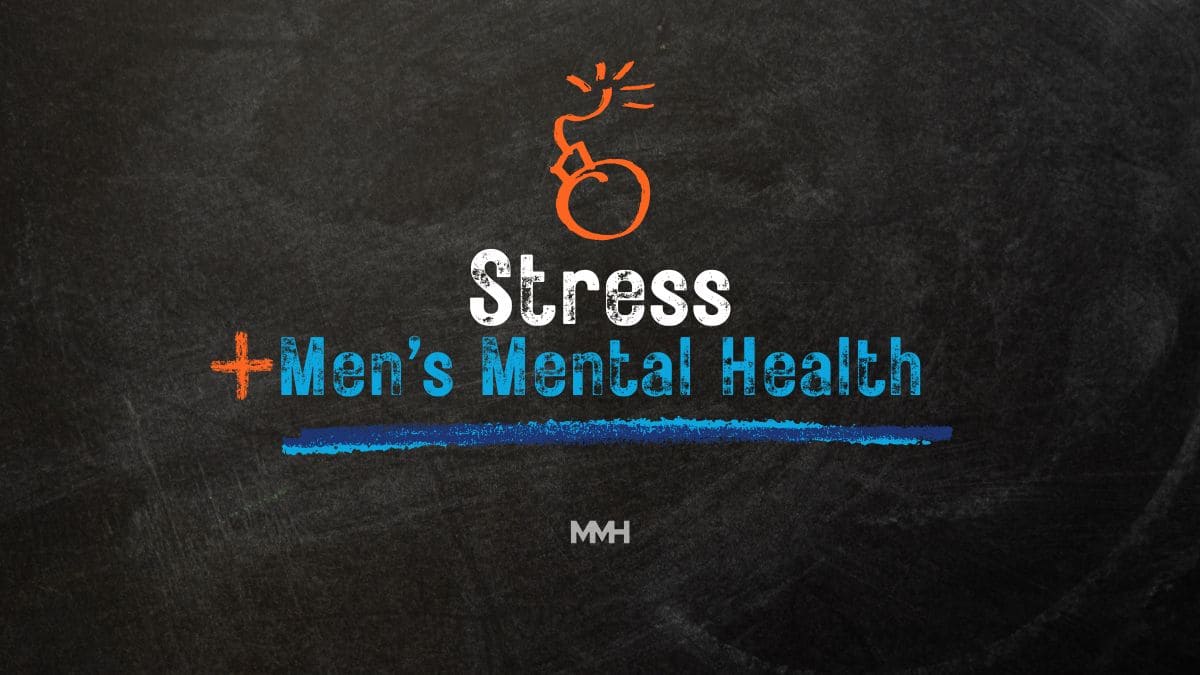MMH Men’s Mental Health does not provide direct mental health support. We do not offer crisis intervention, therapy, counselling, or medical advice. Instead, we provide information and signposting to external services that may be able to help.
Stress
Finding it hard to manage? You don’t have to go through it alone.
Need to talk?
Samaritans are here to listen, 24/7, 365 days a year. You can call them for free on 116 123 or visit www.samaritans.org
Prefer to Text?
Shout is a free, confidential, 24/7 text messaging support service for anyone who is struggling to cope.
If you feel in danger please call 999 or go directly to emergency services.
Stress and Men’s Mental Health: Understanding the Impact
While stress is a universal experience, its impact on men’s mental health is often unique. Societal pressures frequently deter men from seeking support, leading to accumulated tension that affects both mental and physical well-being.
📌 It’s important to distinguish between acute and chronic stress. While short-term stress can enhance focus, prolonged or chronic stress often leads to burnout, anxiety, and significant long-term health issues.
If stress is negatively affecting your mental well-being, relationships, or daily life, identifying its causes and symptoms is the first step towards effective management and regaining control.
✨ While Stress can feel overwhelming, remember that understanding its nuances is the first powerful step toward managing its impact and regaining control over your well-being.

What is Stress?
Stress is the body’s natural response to demands or perceived threats. When faced with challenges, your nervous system releases stress hormones like adrenaline and cortisol, triggering the well-known “fight-or-flight” response.
✅ In small doses, stress can:
- ✔ Improve focus and boost energy levels.
- ✔ Help you respond to challenges effectively.
But prolonged stress can:
- ✔ Lead to emotional exhaustion and mental health struggles.
- ✔ Cause physical symptoms like tension headaches, muscle pain, and digestive issues.
📌 Understanding when stress becomes overwhelming is key to maintaining balance.
💡 Unlocking the definition of Stress is a key step towards mastering your response and finding healthier ways forward.

What Causes Stress in Men?
Stress can stem from various life challenges, many of which are tied to societal roles and expectations. Common causes include:
- 🔹 Work-Related Pressures – Deadlines, high workloads, job insecurity, or workplace conflicts.
- 🔹 Financial Concerns – Debt, bills, and financial instability can be a major source of stress.
- 🔹 Relationship Issues – Conflicts with partners, family members, or friends can create emotional strain.
- 🔹 Health Problems – Chronic illness, injury, or caring for a sick loved one can elevate stress levels.
- 🔹 Life Transitions – Major changes like job loss, moving, or becoming a father can be overwhelming.
📌 Recognizing these stressors can help you develop healthier coping strategies.
🔍 Recognizing the underlying causes of Stress is a crucial step towards developing tailored strategies that truly make a difference in your daily life.

How Stress Affects Mental and Physical Health
Stress doesn’t just affect emotions—it profoundly impacts your body, mind, and behavior.
🟠 Physical Symptoms
- Headaches & Muscle Tension – Stress causes tightness in the body, leading to aches and pains.
- Fatigue & Low Energy – Constant stress drains the body’s resources.
- Digestive Issues – Stress can disrupt digestion, causing stomach pain or nausea.
🟠 Emotional & Cognitive Symptoms
- Anxiety & Frustration – Feeling irritable, overwhelmed, or on edge.
- Difficulty Concentrating – Racing thoughts and mental fog can make it hard to focus.
- Forgetfulness & Poor Decision-Making – High stress affects memory and cognitive function.
🟠 Behavioral Symptoms
- Sleep Problems – Struggling with insomnia, restless sleep, or oversleeping.
- Increased Alcohol or Drug Use – Some men turn to substances to cope with stress.
- Social Withdrawal – Avoiding friends, family, or previously enjoyed activities.
📌 Recognizing the signs of stress early can help prevent long-term health consequences.
❤️🩹 Acknowledging the symptoms of Stress is a brave step towards reclaiming your well-being and finding the right path to recovery.
How Stress Affects Your Body
Stress doesn’t just stay in your head—it can affect your whole body. From tension headaches to gut problems, here’s how stress can take its toll physically and emotionally.
Click The Icons
Brain
Chronic stress can lead to ongoing mental strain. It’s linked to insomnia, headaches, low mood, anxiety, irritability, and even personality changes.
Hair
Long-term stress may contribute to hair thinning or patchy hair loss (including stress-related baldness in some cases).
Mouth
Dry mouth, jaw tension, and mouth ulcers are common when your body is under constant pressure.
Heart
High stress levels are connected to increased blood pressure and a greater risk of heart disease over time.
Lungs
Stress can worsen respiratory issues like asthma, and make breathing feel harder when anxiety kicks in.
Muscles
Tense neck and shoulders? Aches in your back? These are classic signs your body is holding onto stress physically. Even muscle twitches or tics can become more noticeable.
Digestive System
Skin
Testosterone
For men, stress can affect testosterone levels, cause sexual performance issues like erectile dysfunction or premature ejaculation, and reduce libido.

The Different Types of Stress
Not all stress is the same—understanding the different types can help you manage it effectively:
- 🟡 Acute Stress – Short-term stress in response to specific events, like an argument or an upcoming deadline.
- 🟡 Episodic Acute Stress – Frequent bursts of stress, often seen in men juggling high-pressure jobs or multiple responsibilities.
- 🟡 Chronic Stress – Ongoing stress caused by persistent life challenges, like financial difficulties, work pressure, or relationship struggles.
📌 Chronic stress can take a serious toll on mental and physical health if left unmanaged.
🚨 Stress is unavoidable, but it doesn’t have to control your life. With the right strategies and support, stress can be managed effectively.
🛠️ With clarity on the nuances of Stress, you gain the tools to navigate its complexities with greater confidence and purpose.
Explore More
Stress
- Mind – Stress – Provides information, coping strategies, and where to get help.
- NHS – Stress – Covers symptoms, causes, and NHS treatment options.
- Samaritans – 24/7 emotional support for anyone struggling with stress or mental health issues.
- Mental Health Foundation – Stress – Practical tips for managing stress in daily life.
- CALM (Campaign Against Living Miserably) – Support for men struggling with stress, anxiety, and emotional challenges.
While we aim to provide accurate and updated information, MMH Men’s Mental Health is not responsible for the quality, accuracy, or availability of external services linked on this page. If you notice a broken link or have a resource to suggest, let us know.
Ways to Cope and Regain Control
Even small improvements can make a big impact on your well-being. Try these ideas.
If your struggles persist or affect your daily life, consulting a professional is recommended.
Relaxation Techniques
Identify Your Stressors
Seek Support
Talking to someone you trust, whether a friend, family member, or therapist, can provide relief. Sometimes, sharing your thoughts and feelings with others can help put things into perspective.
Focus on healthy habits
Set Boundaries
You Are Awesome.
Someone is ready to listen whenever you need them.
Take the next step:
Need to talk?
Samaritans are here to listen, 24/7. You can call them for free on 116 123 or visit www.samaritans.org
Prefer texting?
Shout offers free, 24/7 confidential support. Text ‘SHOUT’ to 85258 to start a conversation or visit
www.giveusashout.org
Explore More
Looking for guidance? Browse external resources on mental health, self-care, and well-being.
Support Groups
Find connection. Join an external support group and connect with others who understand.
